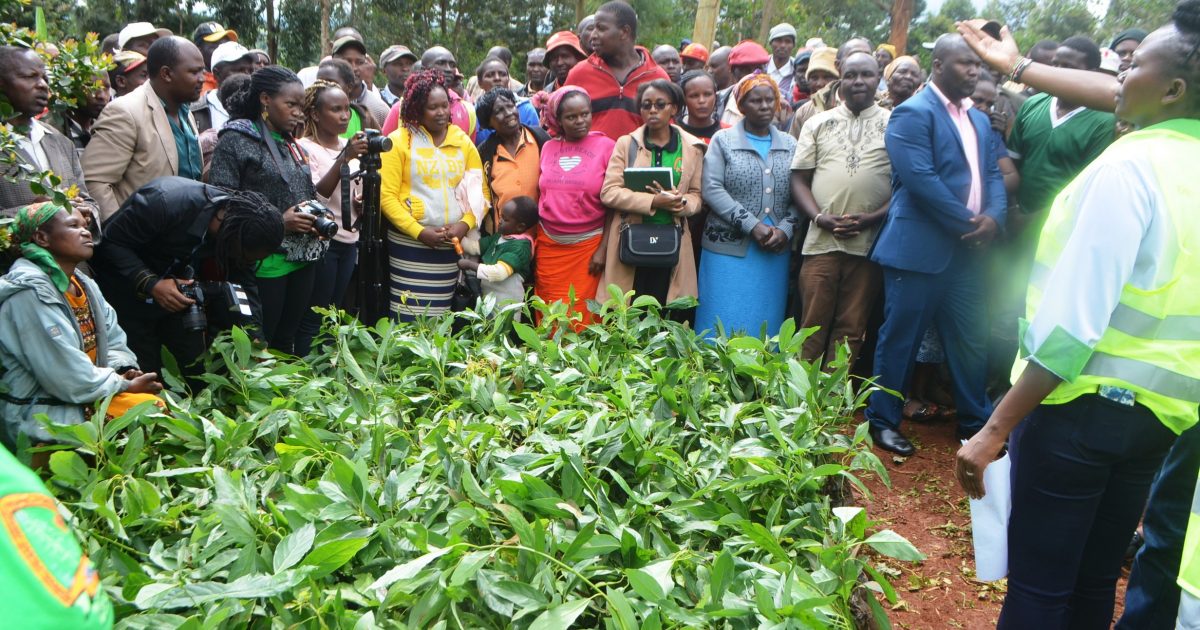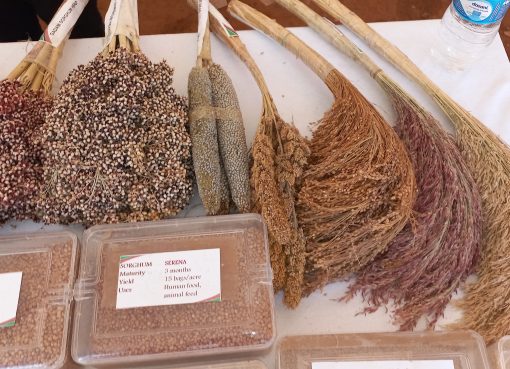If there is one crop that has suddenly become a craze among farmers across the country, it is the Hass avocado.
From Kirinyaga, Nyeri, Embu to Meru, traditional cash crops are fast being wiped out, with avocado trees taking their space on the farms.
In Kirinyaga, some farmers have cut down their coffee bushes replacing them with avocado as they eye a fortune from the new venture.
Boniface Fundi, a farmer who has planted 2,800 avocado seedlings on 14 acres at Nyangati, Mwea East sub county terms the fruit as “gold”. Last year, he sold Sh.145, 000 worth of avocados from only 15 trees with one piece going for Sh.10.
Fundi started as a coffee farmer but later realized that the avocado project is more profitable. The farmer says he encourages farmers to plant avocado as well as macadamia trees.
“My target is that by the time they all mature, I should be harvesting at least 1,000 fruits from each tree, which translates to Sh.28 million in a year. Scaled down considering usual challenges, I should take home at least Sh.20 million,” he says, adding that with production costs of less than Sh.200, 000, the harvest is a fortune.
The windfall is fueled by international demand for the fruit after avocado exports to Saudi Arabia, Qatar and United Arab Emirates grew significantly in the recent past, besides the European market.
The vast Chinese market is also coming up after Kenya signed a pact that will see the fruit exported to the populous Asian nation.
According to 2019 statistics, Kenya is the largest exporter of avocado in Africa, producing 191,000 tonnes of avocados per year with exports estimated at 51,507 tonnes. South Africa comes second with annual exports of 43,492 tonnes.
Although farmers are reaping from the demand in the lucrative international market, they are cautious when dealing with exporters.
Farmers say they fear exporters are exploiting them, because they do not know how the fruit is graded and how much each grade fetches in the market.
Gideon Chege, a retired army officer who has planted 200 trees on his three acres at Murinduko, says the fruit is graded from sizes 12 to 24, but he does not know exactly how the grading is done.
“Despite the good earnings, we can make more money if we sell in kilos rather than per piece. In the current model, we are not given a chance to negotiate the price. We take what is given to us which is not a fair deal,” says the farmer.
Last year, Chege sold avocados worth Sh.150, 000 from 17 trees and expects to earn at least Sh.1 million from his trees each year when they all mature.
He says his initial investment was minimal, at an average of Sh.100 per tree since he has his own nursery. Farmers who wish to plant Hass avocado are buying seedlings at Sh.400 each.
Growers expect to reap more from the crop when prices are expected to double in the coming years.
“When I see this tree, I see money because you put in little money and harvest lots of it,” Chege says as he takes us through his farm where coffee trees used to occupy, but which have been replaced by avocado.
“After harvesting in June and July, I ensure I put manure and some fertilizer. When it starts flowering I spray fungicide to control fruit and root rots. We are also practicing organic farming and although this market has not yet opened up, we know it’s on the way,” he says.
He, however, praises exporters for adopting a good system of harvesting that discourages theft of the fruits from farms.
“When they mature, exporters pick the fruits from our orchards. I just take a seat at my farmgate and count the money,” he says.
But the Avocado Association of Kenya (ASK) has accused some exporters of harvesting immature fruits and wants the Horticultural Crops Development Authority (HCDA) to check this trend, saying the quality of the fruits from the country will be affected if nothing is done on the matter.
“Currently we are coming up with a code of conduct for members which is going to be adhered to by those who wish to carry out this business because we will not allow people to exploit farmers,” says Earnest Muthomi, the society’s Chief Executive Officer.
The concerns also come in the wake of revelations that farmers are being exploited by middle men who buy the fruits at low prices while they make a kill in the international market.
The fruits are packaged in boxes of four kilos each containing about 10 fruits. While the farmers get Sh.10 per fruit, in the international market, each carton goes for an average of $10 (Sh.1, 000).
According to a source at the Agriculture and Food Authority (AFA) who declined to be named, some officers at HCDA collude with exporters to delay efforts to address the issue so that they continue exploiting farmers.
“They are aware of what is happening but are quiet about it. Although farmers are making money, they can get better remuneration for their produce but the brokers are the ones making a kill,” said the source.
By Irungu Mwangi





